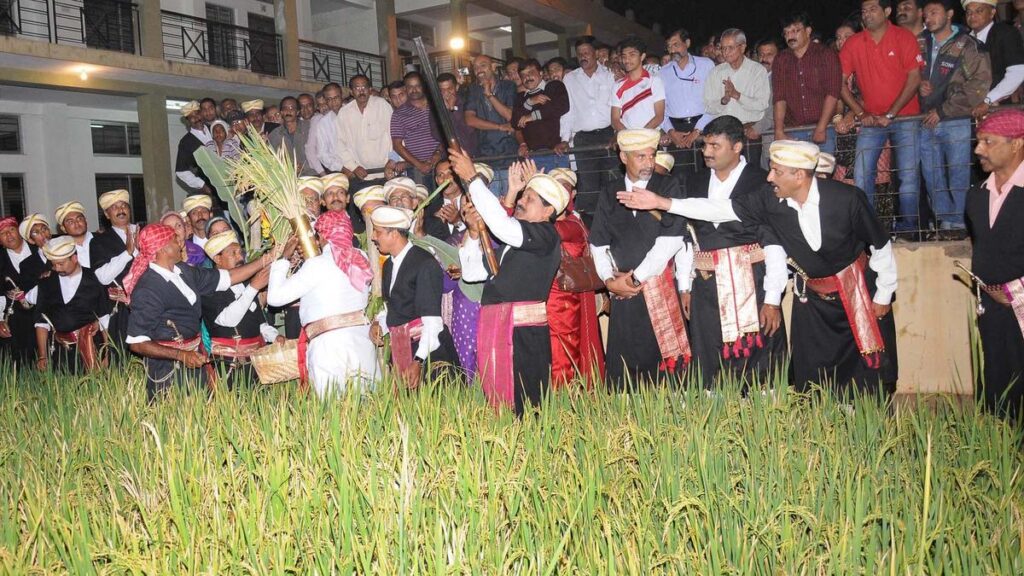Puthari, which means “new rice” in Kodava language, is a thanksgiving festival that celebrates the rice harvest, symbolising abundance and prosperity.

The Kodava community will celebrate Puthari, the harvest festival that holds cultural and spiritual significance for the community, on Saturday, December 14. Those in Bengaluru who cannot make it to their hometowns mark the occasion by gathering in homes, community halls, and at the Kodava Samaja in Vasanth Nagar to honour their traditions.
Puthari, which means “new rice” in Kodava language, is a thanksgiving festival that celebrates the rice harvest, symbolising abundance and prosperity. The festival involves elaborate rituals, folk arts, and traditional feasts.
At the Kodava Samaja in Vasanth Nagar, members gather every year to symbolically harvest paddy grown on a small plot within the premises. This paddy is distributed to participants, replicating the traditional ritual observed in Kodagu. “Since we stay in Bengaluru, every year on Puthari, we make it a point to go to the Bengaluru Kodava Samaja, which we regard as our ainmane (ancestral home) in the city. There, we symbolically harvest some paddy crop and bring back home the paddy sheaves,” said Mohan Devaiah, a member of Kodava Samaja in Bengaluru.
Elsewhere, smaller groups of Kodavas celebrated in homes and community halls. “Puthari is a time for us to reconnect with our roots and fellow Kodavas,” said M.T. Poovaiah, a resident of New Thippasandra. “It’s like bringing a slice of Kodagu to Bengaluru since we cannot go to our home in Kodagu every year,” he added.
Reviving forgotten traditions
Ajjinikanda Mahesh Nachaiah, President of the Karnataka Kodava Sahithya Academy, said, “Kodavas have always been an agrarian community, and rice was their staple crop before coffee cultivation became prevalent in Kodagu. Puthari celebrates the new crop of rice. It is one of the three most important festivals for the community, alongside Cauvery Changrandi (worship of River Cauvery) and Kail Poldh (traditional festival of arms),” he told The Hindu.
He lamented the declining practice of traditional folk arts integral to Puthari celebrations. “Earlier, week-long festivities included ‘Mane Paado’—folk singers going house to house with traditional dudi drums, singing songs of gratitude. Villagers would gather in the mand (village greens or ground) to perform ‘Kolatta’ (a stick dance) and traditional war games like ‘Pariya Kali’ were performed. Unfortunately, these practices are fading. We must teach these traditions to the younger generation,” he said.
A culinary feast
The festival’s menu reflects the Kodavas’ agrarian heritage. Special desserts like thambutt, made from roasted rice flour and mashed bananas, and rice payasam, prepared with freshly harvested rice, are staples of the Puthari feast. Families also prepare savoury delicacies such as pork curry, Kadumbuttu (rice ball), and akki roti (rice bread) to complement the festive spread.
While the festival was traditionally marked by week-long celebrations in Kodagu, most urban Kodavas today celebrate it over a day or two.
source: http://www.thehindu.com / The Hindu / Home> News> India> Karnataka / by Darshan Devaiah B P / December 14th, 2024

